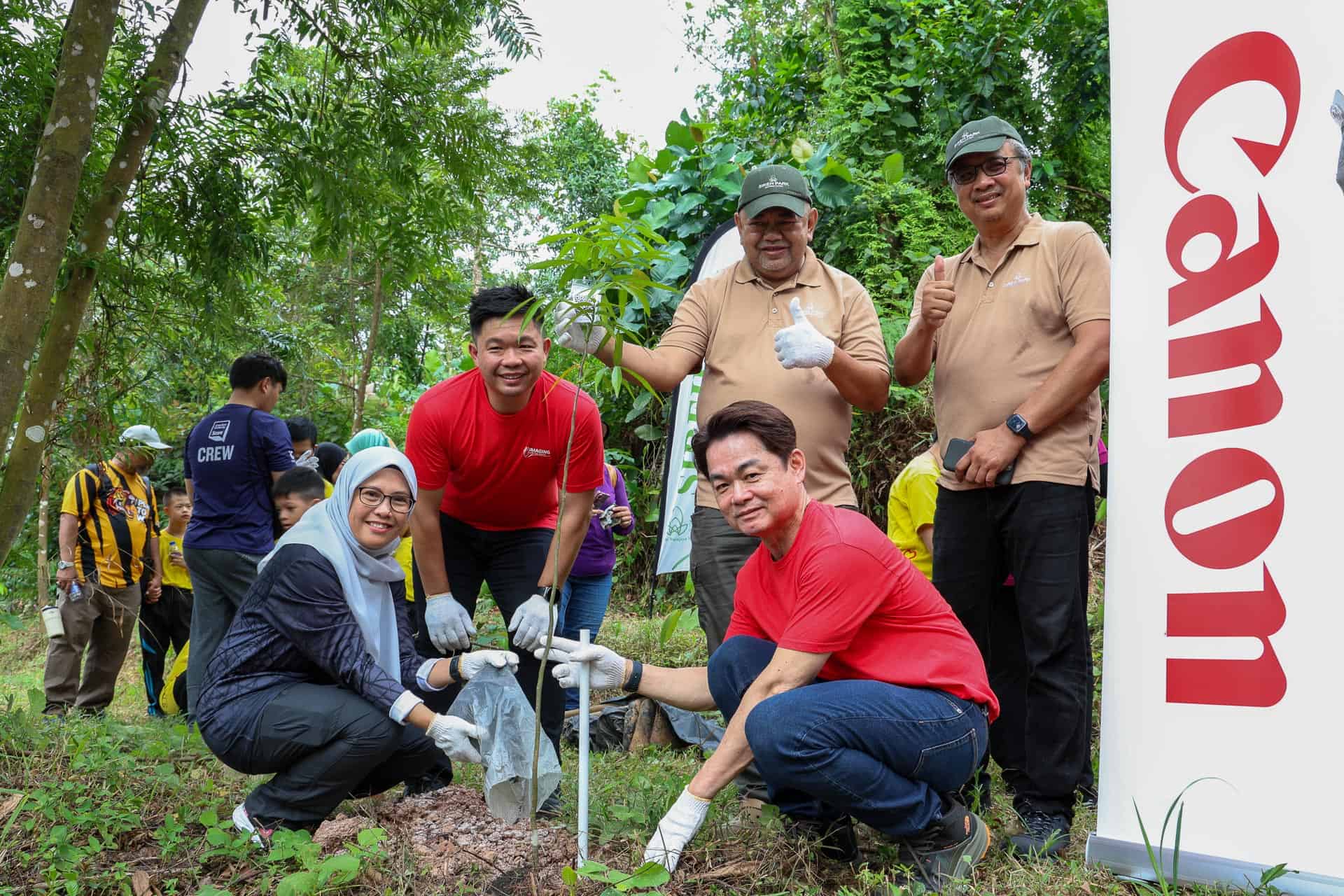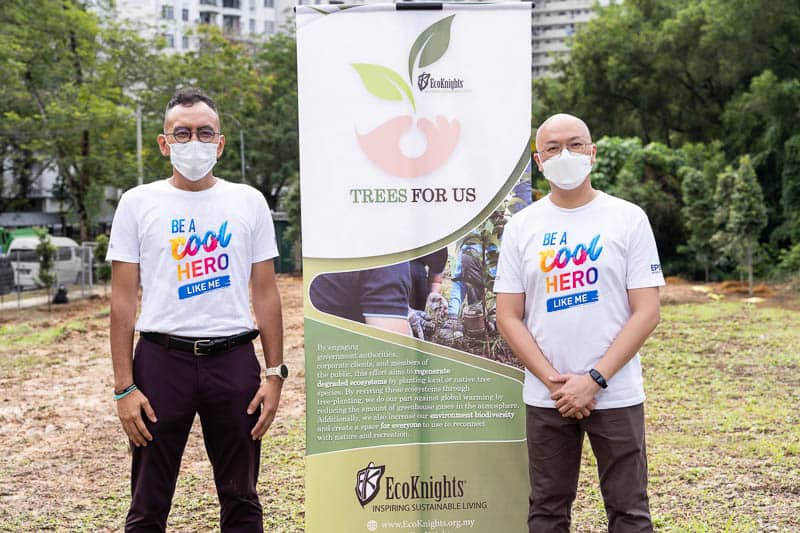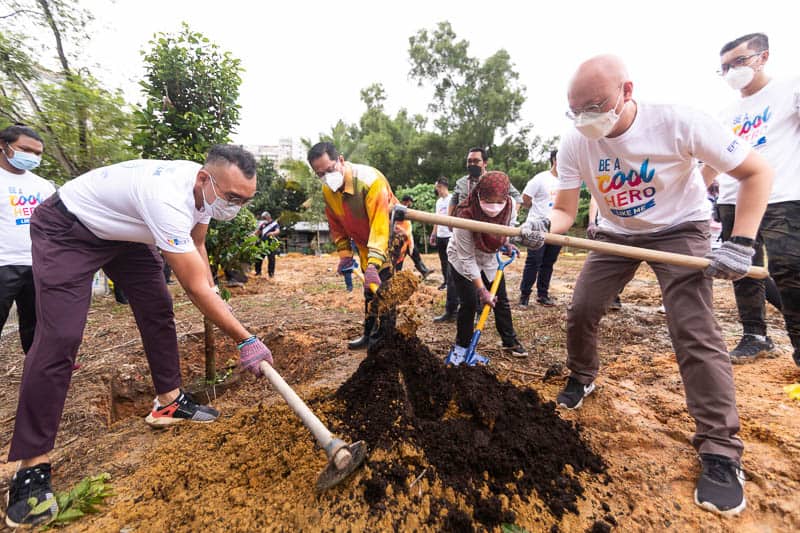
Epson aims to raise RM20,000 donations for EcoKnights trees planting initiative
Epson Heat-Free technology can help to reduce up to 85% less energy and carbon footprint than a similar-speed laser printer
Subang Jaya, 1 December 2021 – Driven by its corporate mission to develop a sustainable society, Epson Malaysia, a leader in the field of printing and visual technology, is partnering up with Malaysia’s leading environmental NGO – EcoKnights – in a series of meaningful fundraise and educational efforts to help drive sustainable business practices among Malaysia’s Small-Medium Enterprises. Epson’s printer sustainability campaign – Be Cool, features their Heat-Free technology as the ecological choice for business owners and a RM20,000 donation to help Ecoknights in their Trees for Us initiative – a program designed to tackle the rehabilitation of damaged or degrading ecosystems.
As Malaysia moves towards becoming a high-technology country by 2030, there is a need to continuously innovate by promoting growth and giving support to the businesses to move from linear economies to circular ones. One way to do so is to improve the efficiency of using finite resources with a zero-waste approach while exploring greener alternatives for everyday consumption.

“Aligned with Malaysia’s commitment to a more sustainable, resilient and inclusive development, the Epson Vision 2050 outlines the company’s efforts in contributing to the development of a sustainable society by leveraging efficient, compact and precision technologies to reduce the environmental impact of products and services across their life cycles. One example of such is the profound reduced energy consumption made possible by our Heat-Free technology,” said Daisuke Hori, Managing Director of Epson Malaysia.
With Epson Heat-Free technology, Epson business inkjet printers consumes up to 85% less energy than a similar-speed laser printer. For a typical office that requires frequent printing, this can amount to distinct savings in their annual energy bills[1]. Inkjet printers also produce up to 85% less carbon dioxide than those of comparable laser printers2. This means that for every 6 cedar trees required to absorb the amount of carbon dioxide as a result of using a laser printer, an Epson inkjet printer requires only 1 cedar tree.
Choose inkjet to grow sustainably and affordably
As part of Epson’s Be Cool campaign, the sales proceed of EcoTank printers during the campaign period, starting from 29 March 2021 to 30 June 2021, will be donated to EcoKnights in support of their Trees for Us initiative. For every RM5000 raised, the NGO will give out 50 trees to communities, schools or organisations that are interested to be part of the trees-planting effort.

Mr. Fadly Bakhtiar, Program Director of EcoKnights, shared his delight on the partnership: “In EcoKnights, we emphasize the integral importance of incorporating sustainable practices in business corporations through education and awareness in environmental conservation initiatives. The Tree for Us program, in partnership with Epson’s Be Cool campaign, marks the start of engaging more stakeholders participating in the national 100 Million Tree Planting initiative by Kementerian Tenaga dan Sumber Asli and Yayasan Hijau Malaysia.”
He also added that, “With the recent United Nations Climate Change Conference (COP26) that was held earlier this month, Malaysia has set bold commitments to achieve its greenhouse emissions intensity against its GDP by 45% by 2030 and to achieve net zero by 2050. Hence, EcoKnights urged for more practical action from corporate companies to take the lead in building greater capacity for technology transfer and investment in renewable energy in mitigating climate impacts. In this context, Epson Heat-Free Technology showcases their sustainability initiatives which contribute to energy conservation and reducing carbon footprints for every print.”
Established in 2005, EcoKnights is an impact-driven environmental organization that focuses on working with key stakeholders in driving and empowering sustainable actions for a better planet. The NGO does this by developing and implementing programs and activities across four pillars, which are, Community Youth & Volunteerism, Outreach & Education, Rehabilitation, Restoration & Conservation and Sustainability Communications. Sustainable community development is the core of all EcoKnights efforts, and this is delivered through environmental policy advocacy, on-ground and hands-on community efforts, corporate partnerships, youth volunteerism and strategic engagements and fundraising.
Epson’s Be Cool campaign will also feature an upcoming virtual forum with leading authorities and experts in sustainable technology. For more information on Epson Malaysia and its campaigns, kindly visit the website at https://www.epson.com.my.
[1] Testing was commissioned by Epson to Keypoint Intelligence-Buyers Lab. Two comparison models were selected from color laser multi-function printers in the 65-70ppm class. Tests were conducted at the devices’ default settings using Keypoint Intelligence-Buyers Lab standard energy consumption test methods. Calculations were based on a weekday workload of 2 x 4 hours printing + 16 hours in sleep/standby mode, and weekend energy use of 48 hours in sleep/standby mode. A total of 69 pages of workload test pattern .doc, .xls, .ppt, .html, and Outlook files were printed 6 times in each 4-hour printing period.
2 Annual CO2 output calculations were based on JEMAI-LCA Pro. Cedar tree CO2 absorption calculations were based on Japan Forestry Agency standards of 8.8kg CO2 per annum per tree.